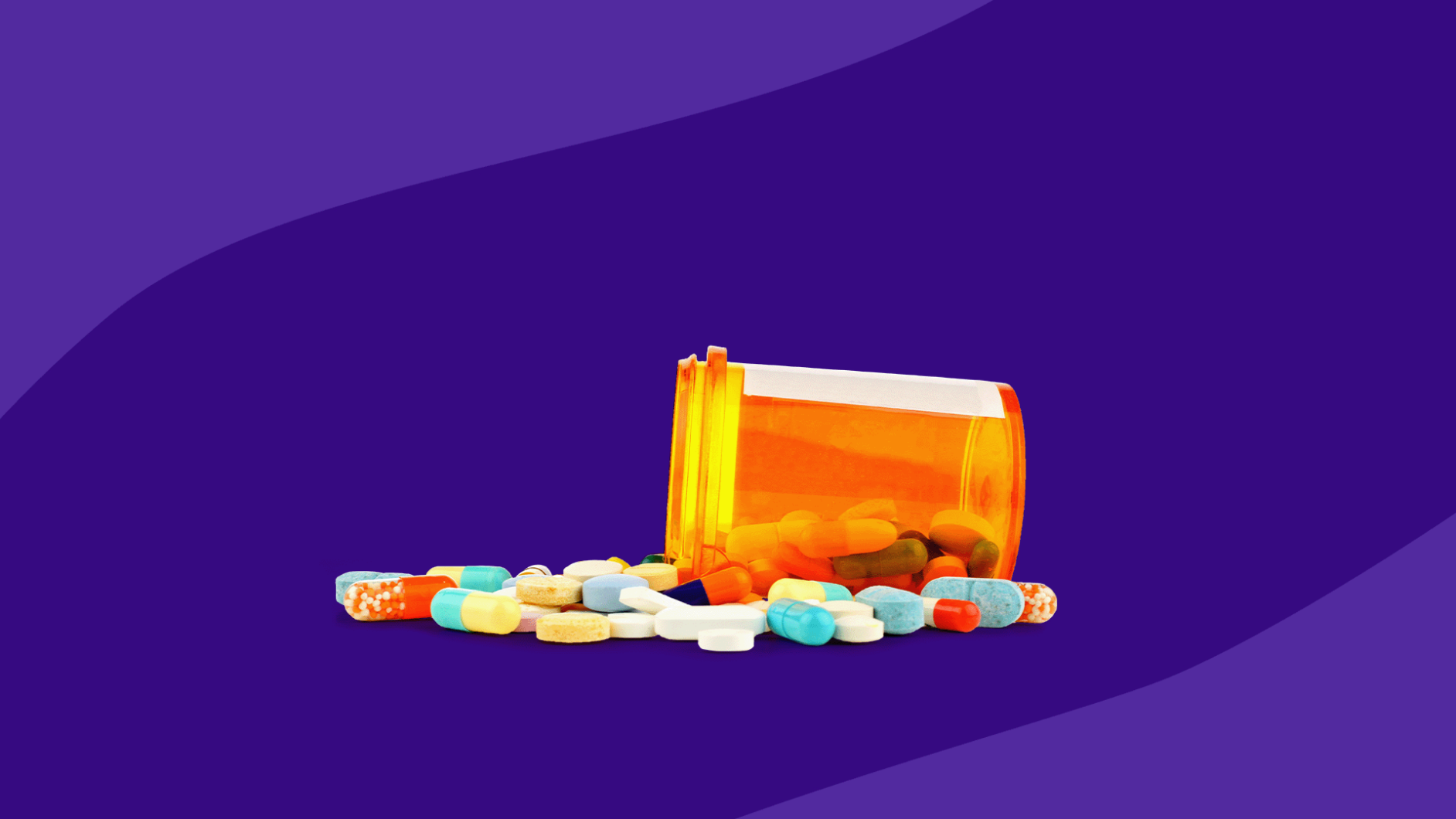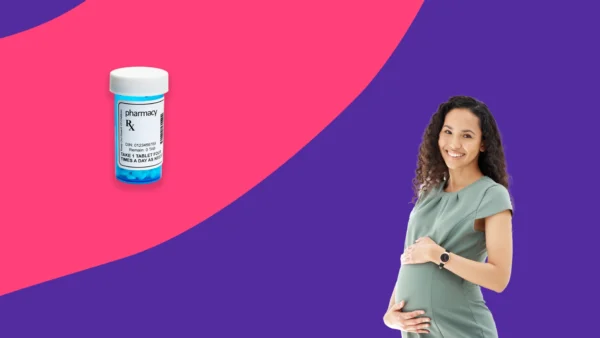Key takeaways
Dramamine is used to prevent and treat symptoms of motion sickness.
Several drugs may interact with Dramamine, especially those that cause drowsiness.
Dramamine can also interact with alcohol, so it’s not recommended to drink alcohol if you’re taking Dramamine.
Keep an updated list of all prescription and over-the-counter medications, vitamins, and dietary supplements you take, and share the list with your provider.
Drug interactions | Food interactions | Other interactions | Avoiding interactions | When to see a doctor
Dramamine, known by its generic name dimenhydrinate, is approved by the U.S. Food and Drug Administration (FDA) to prevent and treat symptoms caused by motion sickness, such as nausea, vomiting, and dizziness. It belongs to a group of drugs called antihistamines and works by improving the body’s sense of balance.
As an over-the-counter (OTC) medication, Dramamine is a convenient treatment option. However, it can potentially interact with other medicines, especially those that cause sleepiness. Taking Dramamine with certain other drugs can increase the risk of side effects.
Read on to learn more about Dramamine interactions.
Dramamine drug interactions
Dramamine has many possible drug interactions. Most of these interactions increase the risk of side effects.
Benzodiazepines
Benzodiazepines are a group of medications that slow down brain activity. Possible uses of benzodiazepines include anxiety disorder, panic disorder, and seizures. These drugs can interact with Dramamine, potentially worsening side effects such as drowsiness, impaired focus, and dizziness. Due to this risk, a health care provider may not prescribe a benzodiazepine if you take Dramamine, or they may advise you to separate your benzodiazepine dose from your Dramamine dose.
Examples of benzodiazepines include:
- Ativan (lorazepam)
- Xanax (alprazolam)
- Valium (diazepam)
- Klonopin (clonazepam)
Other antihistamines
Dramamine is an antihistamine. Antihistamines are medicines used to treat various conditions, including allergies, hives, atopic dermatitis, and motion sickness. There are three types of antihistamines: first-generation, second-generation, and third-generation. First-generation antihistamines cross the blood-brain barrier and cause side effects such as drowsiness, dry mouth, and blurry vision. Second and third-generation antihistamines do not cross the blood-brain barrier as readily and cause fewer adverse effects.
If Dramamine is taken with another antihistamine, there may be a greater risk of antihistamine-related side effects. This is especially true if Dramamine is taken with a first-generation antihistamine. For this reason, it’s best to avoid combining multiple antihistamines and discuss alternative treatment options with a healthcare provider.
Examples of first-generation antihistamines include:
- Benadryl (diphenhydramine)
- Vistaril (hydroxyzine)
- Dramamine (dimenhydrinate)
Examples of second-generation antihistamines include:
- Claritin (loratadine)
- Zyrtec (cetirizine)
- Allegra (fexofenadine)
Opioids
Opioid medications are used to treat pain. However, they can cause serious side effects, such as extreme drowsiness, confusion, and difficulty concentrating. These are similar to the side effects caused by Dramamine, so when combined, the risk of severe sedation, confusion, and difficulty concentrating is greater.
Examples of opioids include:
- MS Contin (morphine sulfate)
- Roxicodone (oxycodone)
- Percocet (oxycodone/acetaminophen)
- Norco (hydrocodone/acetaminophen)
If you’re taking an opioid, it’s best to avoid Dramamine. Talk to a healthcare provider about alternative treatments for motion sickness.
Other sedatives
Opioids and benzodiazepines are sedatives. Similar to its interactions with those medications, combining Dramamine with other sedatives can increase the risk of severe side effects such as extreme sleepiness, impaired thinking, and balance problems. And although it’s rare, combining these medications can even cause slowed breathing or coma.
Examples of sedatives include:
- Luminal (phenobarbital)
- Lunesta (eszopiclone)
- Ambien (zolpidem)
- Fexmid (cyclobenzaprine)
Anticholinergic drugs
Anticholinergics are drugs that block a chemical in the body called acetylcholine. They’re used to treat health conditions such as urinary incontinence, chronic obstructive pulmonary disease (COPD), trouble sleeping, and motion sickness. They cause adverse reactions such as blurry vision, dry mouth, constipation, and memory problems.
Dramamine has anticholinergic activity. Combining Dramamine with anticholinergics can worsen these side effects.
Examples of anticholinergic drugs include:
- Ditropan (oxybutynin)
- Cogentin (benztropine)
- Toviaz (fesoterodine)
- Spiriva (tiotropium)
Xywav and Xyrem
Xywav (calcium, magnesium, potassium, and sodium oxybates) and Xyrem (sodium oxybate) are medications used to treat cataplexy and narcolepsy. If combined with Dramamine, they have the potential to cause serious side effects, including extreme sleepiness, slowed or shallow breathing, coma, and even death. Due to this risk, avoid taking Dramamine if you’re taking Xywav or Xyrem. Talk with your healthcare team if you need alternative recommendations for motion sickness treatments.
Wakix
Wakix (pitolisant) is another drug used to treat narcolepsy. However, its interaction with Dramamine differs from Xywav and Xyrem. If taken with Dramamine, Wakix (pitolisant) can be less effective. For this reason, doctors typically won’t recommend Dramamine if you’re taking Wakix.
Dramamine food interactions
In some cases, food can interact with medicine. Luckily, Dramamine isn’t known to interact with any foods. It can be taken with or without food. If it causes stomach upset, take it with food or milk.
Other Dramamine interactions
Dramamine may also interact with alcohol and some health conditions.
Dramamine and alcohol
Alcohol consumption causes similar side effects as Dramamine. These effects include drowsiness, dizziness, impaired coordination, and difficulty concentrating. Combining Dramamine with alcohol can worsen these effects and make motion sickness worse. So it’s best to avoid alcoholic drinks if taking Dramamine.
Dramamine and disease
Certain medical conditions can increase the risk of side effects from Dramamine. These are drug-disease interactions. These include people with the following medical problems or health factors:
- Lung or breathing problems, such as chronic bronchitis, COPD, or emphysema
- Glaucoma
- Enlarged prostate gland
- Trouble urinating
- Older adults (ages 65 years and older)
How to minimize Dramamine interactions
Minimizing Dramamine interactions can be done with careful planning and open discussion with a healthcare provider. Here are two ways to help avoid Dramamine interactions:
- Keep an updated medication and medical condition list: Include all OTC and prescription drugs, vitamins, herbal supplements, and health conditions on the list. Share this with your healthcare team so they can screen for interactions before prescribing new medications.
- Watch out for warning signs: Recognizing warning signs of potential interactions is an important way to help providers identify Dramamine interactions. If you notice any new or worsening side effects, new or worsening symptoms of your condition, or changes in a drug’s effectiveness, report them or any concerns to your healthcare provider. That way, they can determine if a potential drug interaction causes it.
When to talk to a healthcare provider about Dramamine interactions
Before starting any new medications, prescription or OTC, ask a healthcare provider or pharmacist if it’s safe to take with your other medications. Doing so helps avoid interactions before they occur and allows your provider to properly manage and monitor your health. Also, remember that Dramamine is available in different formulations, including an original formula oral tablet and a chewable tablet. Both forms have a risk of interactions.
This article is not a complete list of all Dramamine interactions. There may be other drug-drug interactions or drug information that aren’t discussed in this article. Always consult a doctor about potential drug interactions so that they can provide you with the proper medical advice.
Sources
- Dimenhydrinate (Rx, OTC) interactions, Medscape
- Dramamine–dimenhydrinate tablet, chewable drug label, DailyMed (2023)
- Dramamine original formula–dimenhydrinate tablet drug label, DailyMed (2023)
- H1 antihistamines: Current status and future directions, World Allergy Organization Journal (2008)
- The blood-brain barrier: An overview: Structure, regulation, and clinical implications, Neurobiology of Disease (2004)











